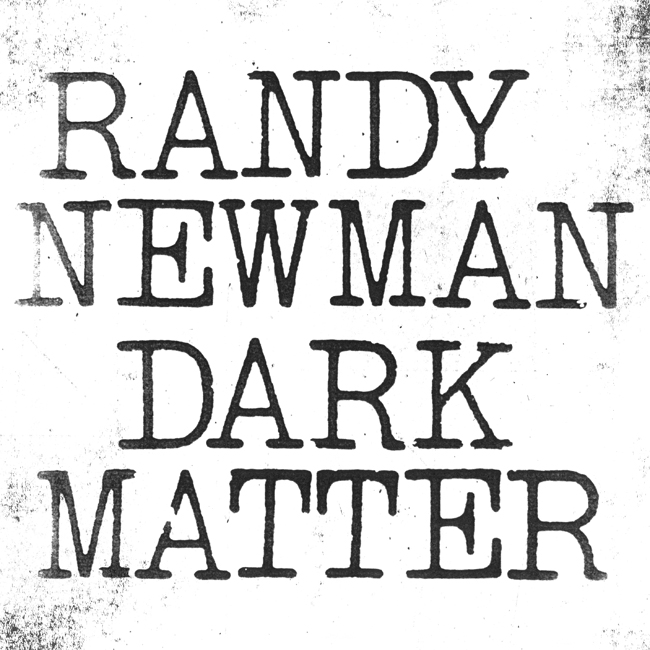If Pixar decides to make a heart-warming epic about Russian strongman Vladimir Putin, Randy Newman has already written the song. Except it won’t be heart-warming, exactly. Newman can do that on commission, but when he’s writing for himself, things get a little messy. The characters are broad, but complicated and not easy to read. Even, or maybe especially, when they’re based on real people. They are comic, tragic, or both.
When Newman writes a song like “Putin,” from Dark Matter, out August 4, he knows stuffing him with bravado is the expected choice. He gives us that, but he also gives us a moment of self-doubt. With backup sings “The Putin Girls” playing the part of Greek Chorus, Putin wonders if he can do what Stalin and Lenin couldn’t – lead Russia to the promised land. After all, he puts his pants on one leg at a time, just like a regular fellow. His confidence doesn’t lag for long. Of course he can put Russia in the comfy chair. God damn, he’s the Putin man.
Newman is modern music’s most accomplished lyrical cinematographer (see also “Pretty Boy”), and there are some particularly ambitious landscapes on Dark Matter. He released his last studio album, Harps and Angels, in 2008, and he could have spent all that time perfecting Dark Matter’s opening track, “The Great Debate.” The subject matter is tough – religion versus science. Over the course of eight minutes and nine seconds, Newman takes both sides and the middle, voicing a half dozen or so characters with a backdrop of musical styles ranging from gospel to dissonant, experimental, and symphonic.
Comparing the theory of dark matter to religion is a brilliant stroke. A scientist is the first to take the stand, and the moderator asks him to explain what dark matter is. He’s not sure, but he thinks it’s everywhere. “Let me get this straight,” sings the moderator. “You don’t know what it is, you don’t know where it is, we can’t get any. Put that to the one side. Let’s put the lord, faith, eternity, whatever on the other side.” That’s when the chorus erupts with a rousing, “I’ll take Jesus every time.” “All right, one nothing,” replies the moderator.
What would a satirist be if he didn’t examine his own positions and methodology? Newman does that directly when a “true believe” steps up to the mic and addresses the moderator. “Sir?” he says. “Do you know what you are? You’re an idiot. You’re a strawman, a fabrication. You see the author of this little vignette, Mr. Newman, self-described atheist and communist, creates characters like you as objects of ridicule. He doesn’t believe anything he has you say. Nor does he want us to believe anything you say. Makes it easy for him to knock you down.”
This “true believer” is the voice of reason and moderation. He believes in Jesus and evolution, in global warming and life everlasting. Of course, the voice of reason can’t win. The moderator has merchandise to sell in the lobby, and he doesn’t have time for communists.
That’s not the last of the character studies. Newman contemplates the life of Sonny Boy Williamson, “the only bluesman in heaven,” and the second, more famous Sonny Boy Williamson who stole his name. In “Brothers,” Robert and John F. Kennedy talk about the pre-integration Washington Redskins, the Bay of Pigs, and, most importantly, the irresistible Celia Cruz. Then there are the uncelebrated, everyday people, living, loving, and dying. “Lost Without You” alternates between the points of view of a dying woman telling her children to take care of their father, and the father, who is waiting outside the room. It’s as devastating as “Old Man,” another of his underappreciated masterpieces. “Don’t let him sleep in that chair,” the woman says. “If he holds out his hand to you, hold it tight. If that makes you uncomfortable or if it embarrasses you, I don’t care.” I can picture that room. I can feel it. And I know it’s one of a thousand or more rooms where that conversation is happening right now.
Newman knows when to keep it simple. “She Chose Me” is just a man, “not much to talk to, I know how I look,” amazed that he is so loved. It’s not dressed up in metaphors, it’s just a half-stunned appreciation. “The most beautiful girl in the world, and she chose me,” he sings. A pure love song.
Monk theme song “It’s A Jungle Out There,” making its debut on a Newman studio album, is a nice surprise. It’s a great song on its own, and enough time has passed to separate it somewhat from the show.
As is his custom, Newman gives us a lot to chew on. And I’ll have to resist the temptation to update this review over the coming months when some new dimension of “On the Beach” or “Wandering Boy” reveals itself on repeated listening. But then again, maybe I won’t resist. That’s the joy in being a Randy Newman fan.
Also new this week:
Eagles of Death Metal – I Love You All the Time: Live
Flagship Romance – Tales from the Self-Help Section
Hard Working Americans – We’re All In This Together
Emmylou Harris – At the Ryman/Nash Rambler
George Thorogood – Party of One
Vinyl:
Brian Eno – Another Green World, Here Come the Warm Jets, Before & After Science
Van Morrison – Astral Weeks
DVD:
Crashing (Season One)
